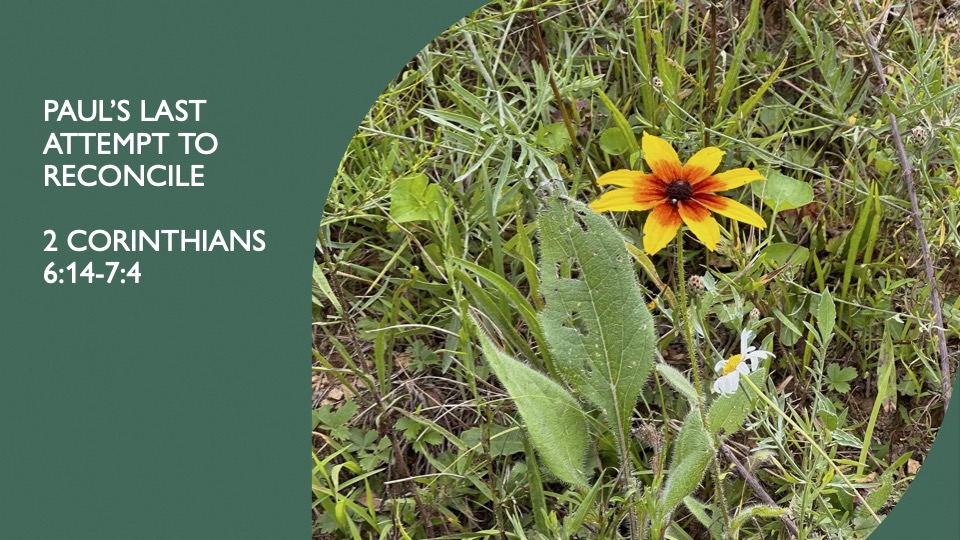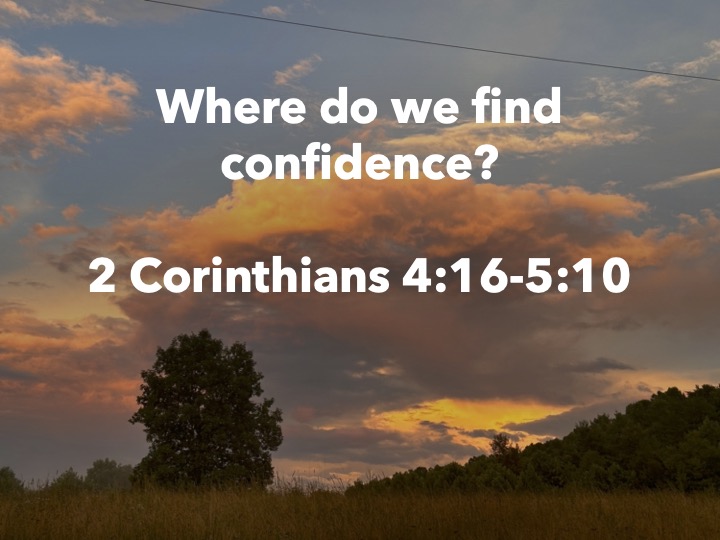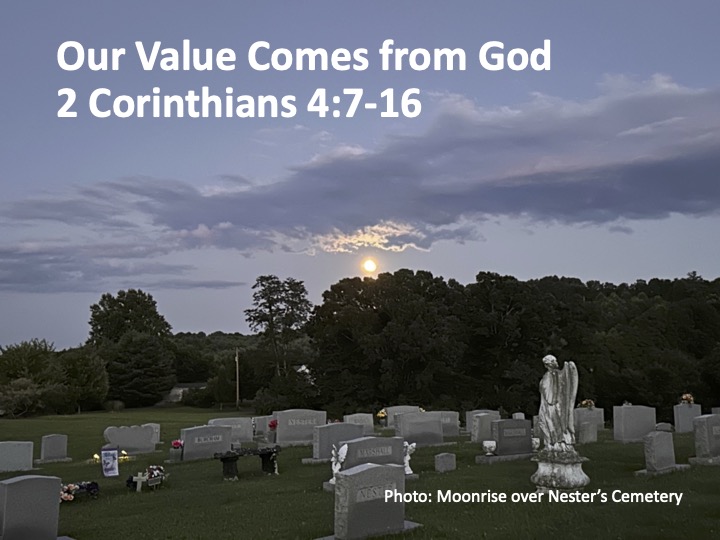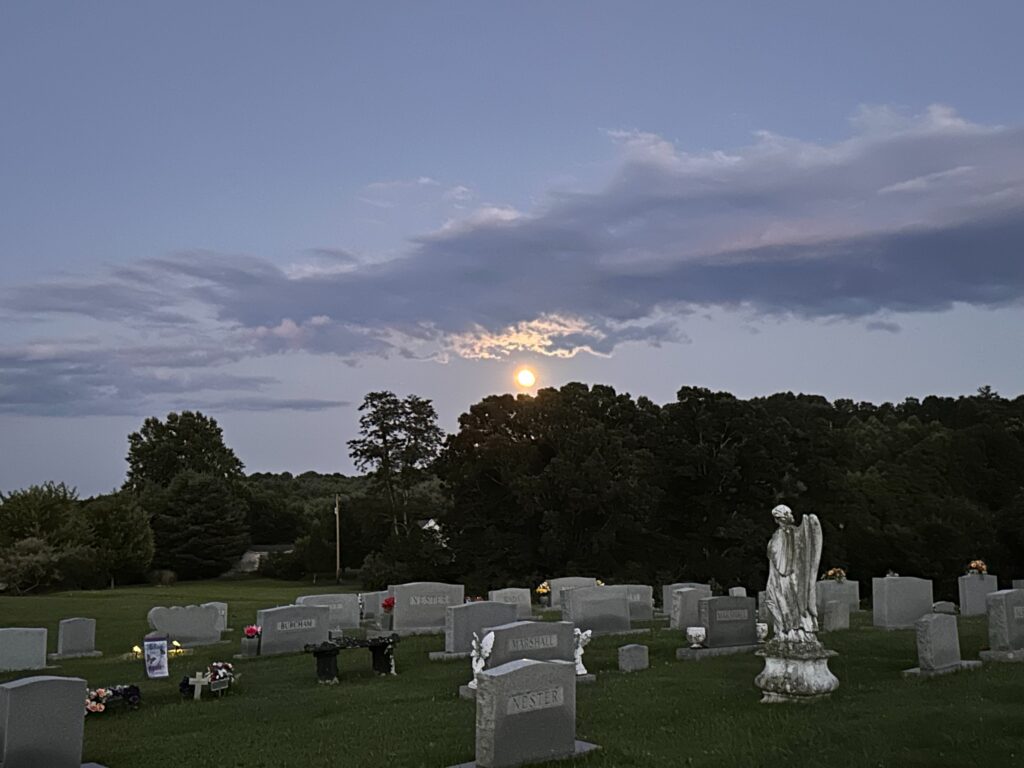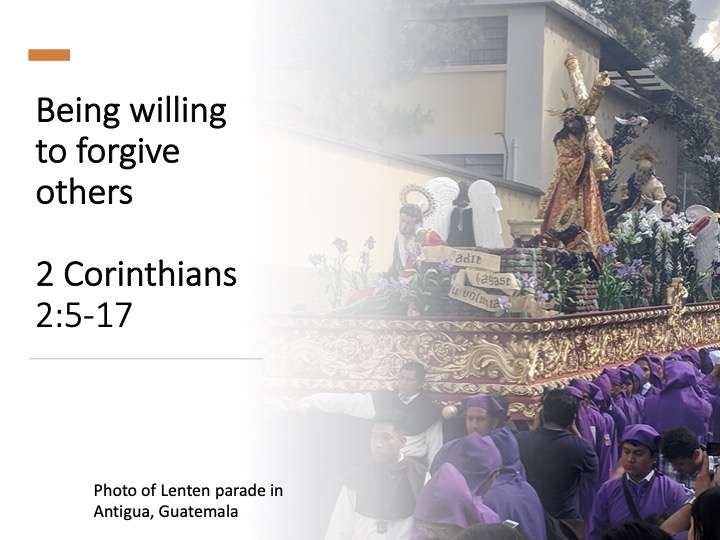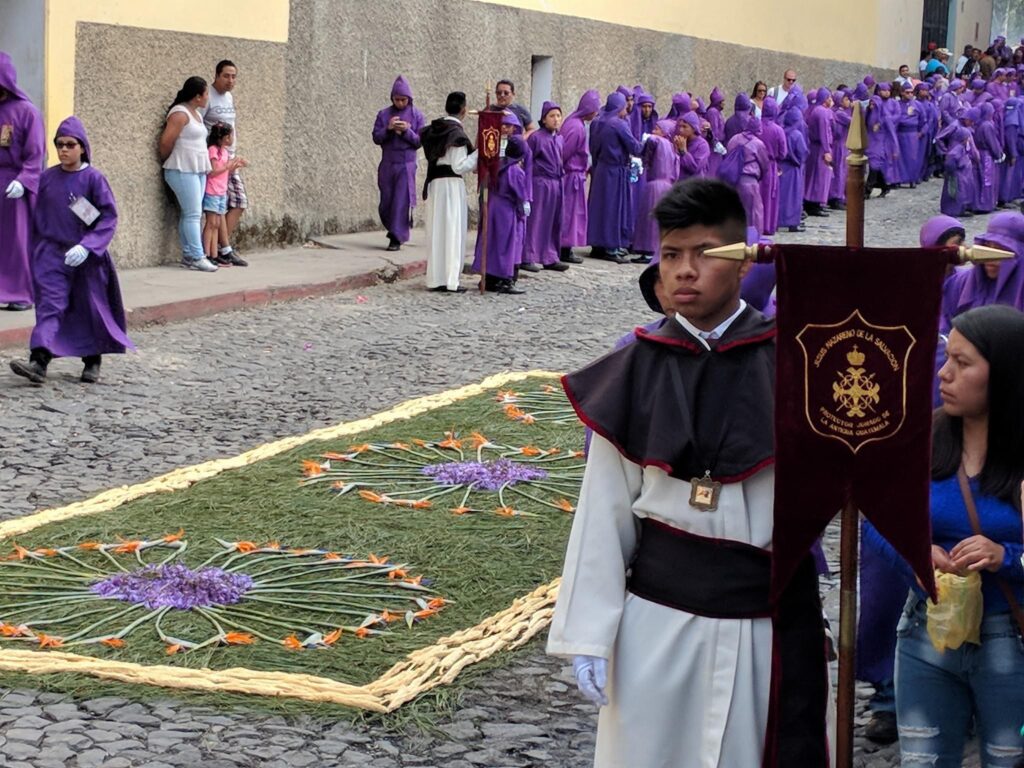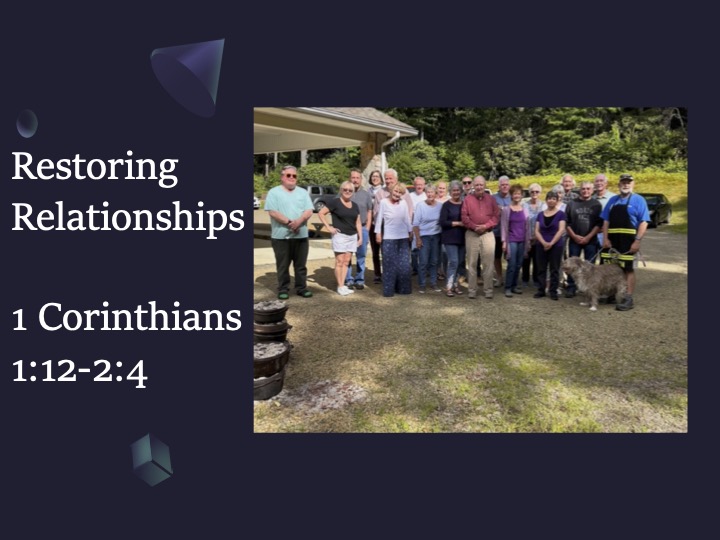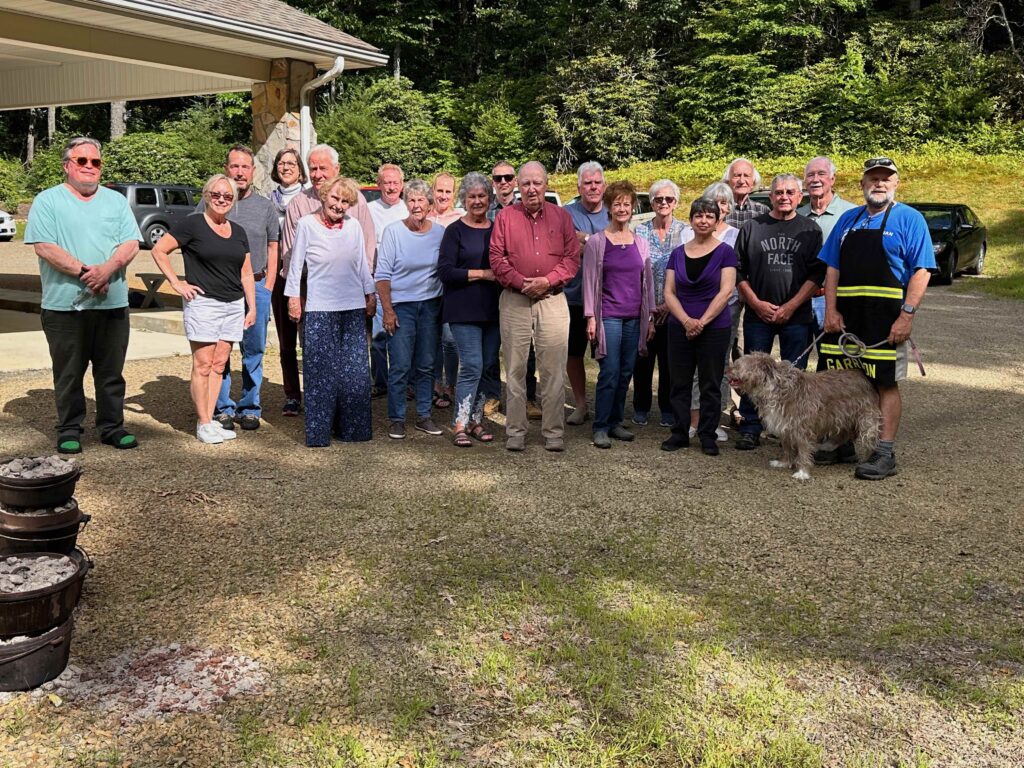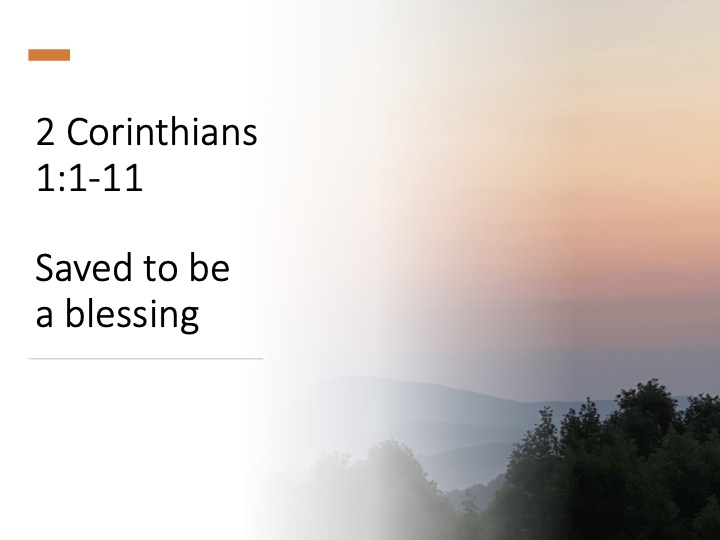Jeff Garrison
Mayberry & Bluemont Churches
2 Corinthians 6:14-7:4
September 3, 2023
At the beginning of worship
As Christians, should we separate ourselves from the world?
There are some who think such separation is necessary. Going back to the 2nd Century, monks fled into the desert to live in intentional Christian communities. In 19th Century America, utopian Christian communities were popular in the American Northeast and Midwest. Most were short lived.
Even in recent times, such communities have appeared. Outside of the Amish, they tend to have a limited lifespan. Most fall apart. A few self-destructed in a horrific manner. Think of Jonesville, which started out as a community who took care of the poor in the Bay Area. After moving to South America, it ended with poisoned Kool-Aid. Or Heaven’s Gate, whose members thought that by dying they’d somehow hop a ride on the Hale-Bopp comet.
Fleeing the world is not necessarily a good idea. Even though our citizenship resides in heaven, we have been called to do tasks here on earth. As we’ve learned from 2nd Corinthians, we’re to be Jesus’ ambassadors.[1] While we shouldn’t try to flee the earth, there are things we should avoid. We’ll discuss that today.
Before the reading of Scripture:
For the last several months, we have heard Paul repeatedly defend his ministry to the church in Corinth. I am sure some of you will be glad to know that today, we’re at the end of Paul’s defense. You can think of today’s passage as the defense’ summation to the jury. Next week, we’ll be onto new topics as Paul prepares the Corinthians for his visit. But there are still a few verses for us to cover before we get there.
Our text is difficult. Some scholars question if Paul wrote it, thinking that a good part of today’s readings doesn’t really fit with Paul’s other themes in the letter. I disagree. Remember, I have pointed out several places in this letter where Paul diverts from his primary theme and then returns to it. He does that here.
Was Qumran a source for Paul?
The other question scholars raise is that this section of the letter seems to draw of different sources, some think perhaps from the Qumran Community from which the Dead Sea Scrolls come.[2]But we can’t be sure. Since Paul returns to his topic of defending his ministry and reconciliation with those who are estranged from him in Corinth, I hold that this all belongs to Paul even if he borrowed some ideas from others.
Read 2 Corinthians 6:14-7:4
Paul finally comes to the end of his defense, which he does by making a final plea for reconciliation with those estranged from him in Corinth. But before he makes his final plea, he has a few more ideas to convey.
Do not be yoked with unbelievers
“Do not be mismatched (or yoked) with unbelievers,” Paul says at the beginning of this passage. This often has been used a passage to discourage marriage between believers and non-believers (and in certain churches, between their members and questionable believers of other churches). But is that what Paul speaks of here?[3] I don’t think so.
Paul has already covered the marriage with non-believers in his first letter. There, Paul encouraged those married to non-believers to remain faithful in their marriage if they spouse want to stay married. He even suggests this might be an opportunity for the believing spouse to lead their partner into the faith.[4] Has Paul changed his mind? No.
Paul wanting his listeners to avoid Idolatry
Paul may be thinking about business arrangements which could involve a believer in the pagan world. Corinth (and most of the Roman world) was thoroughly saturated with paganism. Such beliefs penetrated business life and other areas of the city. “Flee from idolatry,” Paul told the Corinthians in his first letter.[5] That applies here, too.
Rhetorical questions
Instead of coming right out about the meaning of his advice with previously given information, Paul asks five rhetorical questions. These give us an idea of what he means. These questions build, crescendo-like, to the fifth, which indicates Paul’s concern with idolatry. Believers must draw a line between themselves and the pagan world. Let’s look at these questions briefly.
1. Righteousness and lawlessness
“What do righteousness and lawlessness have in common?” Here Paul refers to God’s law. As believers we must show the world that we’re right (or trying to be right) with God.
2. Light and dark
“What partnership is there between light and darkness?” Jesus is the light of the world, we proclaim.[6] Paul wants the believers in Corinth to stand in the light, not in darkness, which here represents evil. He provides similar advice to the church in Ephesus, where he tells them to have no fellowship with darkness.[7]
3. Christ and Beliar
What agreement exists between Christ and Beliar? This is an interesting one as the term Beliar is not used in the rest of scripture. Obviously, he refers to Satan, but why didn’t Paul use the more common name for the evil one? Paul uses Satan elsewhere in his writing.[8] While Beliar is not found in scripture, it was a common term for Satan or those opposed to God in the intertestamental period (the time between the completion of the Old Testament and the New). It was also a term used in the Qumran community.[9] What can we take from this? Obviously, those opposed to God have no agreement with Christ.
4. Believer and unbeliever
Next, Paul asks what a believer shares with an unbeliever. Clearly, there are things that all humans share together, but I expect Paul means more to where our hope lies. Elsewhere, Paul refers to those who are believers have been adopted into God’s family, which makes us different from others.[10]
5. God’s temple and Idolatry
Paul’s final question hits the nail on the head and reminds us of a problem facing Christians living in a world of idols. Previously, in 1st Corinthians, Paul made the case for our bodies serving as God’s temple.[11] Here, he reminds them of this truth. And as temples of the living God, we must avoid association with idolatry.
Idolatry in the 1st Century
Living in the ancient world, where none of the pagan deities required exclusive worship, one could worship many gods.[12]Such practice was held in high esteem. Pagan temples were commonplace. This setting required Christians to walk carefully to avoid giving the impression they condone idols.
Fleeing idolatry in the 21st Century
While we may not have to deal with the same kind of idolatry in our world, we still deal with idols. We should be aware of implying that we put our faith in anything but God. For to do so, we fall into idolatry. For this reason, I avoid reading horoscopes and can’t imagine going to a fortune teller or carry a good luck charm. But it’s also important in other ways.
I was reminded in a meme on Twitter this week of the Bible’s instruction on politics. It comes from the Psalms. “Do not put your trust in princes, in mortals, in whom there is no help.”[13] We might replace princes with politicians (of whatever stripe). While they have a high calling, they are still mortal and ultimately, will fail us. They can be helpful, but they are not our Savior. We already have a Savior, and it is to him we’re to worship.
God’s promises and our call
After asking these rhetorical questions which, I suggest, emphasizes living in a manner that avoids idolatry, Paul quotes a variety of Old Testament scriptures to remind us of God’s promises and our calling to stand apart from the world.
The first passage is from Leviticus, in which we’re reminded that God will be with us, and we are to be God’s people.[14] This is like the beautiful reminder we have in Revelation of the life to come, where God will wipe away our tears.[15] Because we’re God’s people, we’re to separate ourselves from that which is unclean, Paul insist, drawing on a passage from Ezekiel.[16]Then, quoting from Samuel, he returns to the promise of God as our Father and we as God’s children.[17]
Because of this promise from God, Paul issues a call to the Corinthians to cleanse themselves and, as he called on them last week, to make room in their hearts for Paul and his companions.
Paul ends with praise of the Corinthians
As he closes this section, Paul uses the affectionate term, “Beloved” to express his feelings for the Corinthians. Paul then continues, reiterating what he’s said so many times in this letter, that he and his coworkers are innocence of the charges brought against them. They have wronged no one, corrupted no one, or taken advantage of no one. Paul wants to reconcile so that they might, in life and in death, be together.
Paul ends this section of the letter, appropriately, on a high note. He reminds the Corinthians of the pride he has in them. We could all use a bit of praise, right? Paul didn’t want the Corinthians to think he was just beating them up, for he did really cares for them and wanted to reconcile with those to whom were estranged.
What we should take away
As we come to the end of this section of Paul’s letter, we should ask ourselves how far we would be willing to go to reconcile ourselves to other believers. You know it is hard to reach out when you’ve been hurt. But it’s a part of our calling. In addition to avoiding the appearance of idolatry, we should willingly take the risk and to reach out in love to reconcile ourselves to those estranged from us. Amen.
Notes
[1] 2 Corinthians 5:20. See https://fromarockyhillside.com/2023/08/20/because-of-jesus-we-look-at-the-world-differently/
[2] Paul uses ideas and language here that similar to those used in Qumran. See C. K. Barrett, A Commentary on the Second Epistle to the Corinthians (1973, Hendrickson Publishers, 1987), 195-199.
[3] For a discussion of how we might misuse the passage, see Ernest Best, Second Corinthians: Interpretation, A Biblical Commentary for Teaching and Preaching (Louisville, John Knox Press, 1987), 67-68.
[4] 1 Corinthians 7:12-16.
[5] 1 Corinthians 10:14.
[6] John 8:12.
[7] Ephesians 5:11. Darkness is often used to represent evil. Jesus speaks of the outer darkness as a place away from God (example: Matthew 8:12, 25:30). Paul refers to the dark rulers of the world (Ephesians 6:12 and Colossians 1:13).
[8] Paul uses the term Satan in ten times (Romans 16:20; 1 Corinthians 5:5 and 7:5; 2 Corinthians 2:11, 11:14, & 12:7; 1 Thessalonians 2:8; 2 Thessalonians 2:9; and 1 Timothy 1:20). Five of the ten usages of this term were in his writings to the Corinthians!
[9] Paul Barnett, The Second Epistle of the Corinthians (Grand Rapids, MI: Eerdmans, 1997), 347-348. See also C. K. Barrett, 198.
[10] See Romans 8:15, 8:23, 9:4; Galatians 4:5; and Ephesians 1:5.
[11] 1 Corinthians 3:16-17, 6:19-20.
[12] Best, 65-66.
[13] Psalm 146:3.
[14] Leviticus 26:11-12 (Paul rough quote is from the Septuagint, or the Greek translation of the Old Testament).
[15] Revelation 21:4.
[16] Ezekiel 20:34 (again, the quote comes from the Septuagint).
[17] 2 Samuel 7:14.


